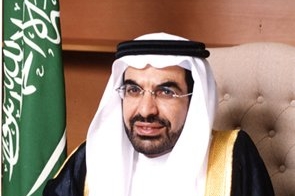
Chairman of KACARE: Saudi Arabia aims to adopt electricity production using renewable energy by 50% in 2030
Dr. Khalid bin Saleh Al-Sultan, Chairman of King Abdullah City for Atomic and Renewable Energy (KACARE), has affirmed that the Kingdom of Saudi Arabia is working to build a sustainable renewable energy sector that includes industries, services, localization of technologies, and qualification of human cadres by defining main frameworks for building the sector.
He said that the Saudi Ministry of Energy approved policies that stimulate the participation of the private sector in this field, in addition to updating regulations for renewable energy projects to achieve the goals of the National Renewable Energy Program, in line with the Kingdom's Vision 2030, and under the direct and continuous supervision of Prince Abdulaziz bin Salman bin Abdulaziz, Minister of Energy. This will make the energy organization a unified centre for the Kingdom's capabilities in energy research, measurement, and data collection, organization, and development, in addition to offering tenders related to renewable energy, in cooperation among all relevant authorities in the energy sector in the Kingdom. He pointed out that the Kingdom aims to adopt electricity production using renewable energy by 50% in 2030, while the remaining percentage will depend on gas.
This came in the Kingdom’s speech delivered by the Chairman of KACARE and Head of the Kingdom’s delegation participating in the 11th session of the General Assembly of the International Renewable Energy Agency (IRENA) on the occasion of opening the current session. He also expressed in his speech the Kingdom’s appreciation for the IRENA for its efforts to achieve its goals towards promoting the use of renewable energy at the global and regional level.
The Chairman of KACARE stressed the importance of concerted efforts in light of exceptional circumstances during the COVID-19 pandemic. He praised everyone's solidarity and cooperation in facing global challenges and crises, and moving forward towards building a prosperous future for the world.
Dr. Al-Sultan pointed out that Saudi Arabia has launched several projects and initiatives in this context, including the green hydrogen project in NEOM, and the projects of SABIC and Saudi Aramco to store and use carbon in manufacturing various products such as blue ammonia, which was approved by the leaders of the G20 countries and represents a comprehensive approach and integrated realistic management of emissions that contribute to preventing global warming. The projects and initiatives also include enabling new technologies in the field of renewable energy, increasing the local content in industrial and service value chains and qualifying the necessary human capital.
He noted that the Kingdom of Saudi Arabia began planning to stimulate the private sector and interested investors in this field to invest in the renewable energy sector in addition to the Kingdom's commitment to creating a local competitive market for renewable energy with a clear methodology to ensure the competitiveness of renewable energy, in line with the Kingdom's Vision 2030, supported by the Custodian of the Two Holy Mosques King Salman bin Abdulaziz Al Saud and HRH Crown Prince.



























